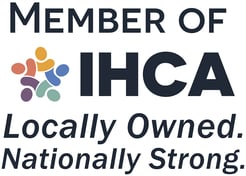Like so many entrepreneurs, Kunu Kaushal is taking a risk. He and a five-person team are preparing to launch a business designed to capitalize on a new opportunity in Tennessee’s health care market. And though the venture seems promising, whether it will thrive is still anyone’s guess.
The uncertainty comes from the fact that Kaushal’s group likely will be among the first in the state to own and operate an “adult care home” — a new type of health care facility authorized by the Long-Term Care Community Choices Act of 2008 that’s intended to serve two specific patient populations within home-like settings.
Once the state finalizes the rules defining and governing these homes — including provider qualifications, minimum health and safety standards, staffing requirements and the like — the doors will open for Kaushal and others to enter this untested market.
The question is: Can this be a profitable business?
The Oregon model
The objective of the Long-Term Care Community Choices Act is to create new home- and community-based long-term care options and to more evenly distribute the state’s Medicaid dollars among those alternatives and nursing homes. Prior to the creation of the law, nursing homes received about 98 percent of long-term care dollars in Tennessee.
Adult care homes are one of these new options. As currently defined, an ACH can house up to five individuals who need ventilators or have suffered traumatic brain injuries. Each home must have a properly licensed professional who lives on the premises as a “resident manager” and have a professional caregiver on duty 24 hours a day, among other requirements.
Modeled on the “adult foster homes” developed in Oregon, ACHs originally were meant to serve a broad population of Tennessee seniors, including those who may need additional assistance with getting into and out of bed, preparing meals or taking their medications. The idea is to improve the quality of life of people who may otherwise delay needed care in order to avoid nursing homes.
Mary Gear, an administrator in the Oregon Department of Human Services, said the state’s adult foster home residents often experience better quality of life than living in a nursing home because they receive more personalized care in an environment that feels more like living at home.
“If you’re one person out of 100 in a large facility, it’s easy to get lost, easy to be one of many,” Gear said. “In a smaller setting, people get to know your personal rhythms and how you like things done.”
Oregon’s adult foster homes were first established in the 1970s and now serve about 4,500 residents.
Patti Killingsworth, assistant commissioner of the Bureau of TennCare, said the state would have “preferred to start with everyone” and more closely mirror Oregon’s comprehensive program, but there was some “push back and resistance” from providers that would stand to lose millions in reimbursement dollars should a large number of residents opt for ACHs.
Patrick Willard, advocacy director at AARP of Tennessee, said one of the arguments against starting with broader population was a concern for safety and quality care.
“You want to make sure as you’re starting this that we are establishing a safe environment for the elderly and for people that need this type of care,” Willard said. Doing so, he added, will make future expansion of the concept easier.
For now, ACHs will serve the ventilator and brian-injury populations, which Killingsworth said tend to “fall in a gap” in the system because they’re not typically served by nursing homes or assisted-living centers. Depending on the severity of their condition, these people are cared for by loved ones, receive private-duty nursing or other home health services, or move to out-of-state facilities.
A 10-bed respiratory unit at Metro-run Bordeaux Long Term Care is among the only options for these patient groups in Tennessee. At a recent Metropolitan Nashville Hospital Authority board meeting, a Bordeaux representative said the unit runs at a census of “about 11.”
With ACHs, these patients will have another option to get the care they need while staying close to their families.
Rush to market?
So who’s going to own and operate adult care homes? The question mostly is met with shoulder shrugs and speculative predictions.
Killingsworth said there’s been “a fair bit of interest” in opening adult care homes and expects providers with special expertise in these patient populations will be among the first. Kaushal’s group falls into that category. He and his team, a still-unnamed group of physicians and nurses, previously worked at a private-duty nursing firm with experience caring for ventilator patients.
Killingsworth also expects to see entrepreneurial health care professionals, most likely nurses, convert their homes into ACHs. That’s a common model in Oregon, where Gear said having individuals own three or four homes is “quite rare.”
“Rarely do we have a corporation who is looking to open a foster home,” she said.
Yet Killingsworth thinks Tennessee nursing home or assisted-living operators may be interested in opening ACHs so they can market a fuller spectrum of services, particularly if — as she expects — the model is expanded to include people with less serious conditions.
But given all the unanswered questions about this model, it’s unlikely there will be a race to market for these homes. For one thing, no one — not even TennCare — is quite sure how large the potential patient population is for these homes. Killingsworth said at a February licensing board hearing about ACHs that TennCare has 1,000 ventilator patients on its rolls statewide.
But if the program is expanded to its originally intended scope, some expect to see a “woodwork effect.”
“A few patients may move from skilled-nursing and assisted-living settings into an adult care home, but the majority will come from outside the system,” said Will Council, CEO of nursing home care provider Advocat Inc. Those will be people who have been “fighting hard to avoid having to go into a nursing home, delaying their decision, but now with an attractive option like this, they might decide to take advantage of it.”
But as the program gets started, Kaushal wonders how quickly patients will make their way to ACHs. How fast will TennCare place them and will providers be able to maintain a full patient census?
“If you go out there and spend all this money and try to buy these homes, and TennCare only sends you one or two patients but you have five beds, now all of a sudden you’re losing money,” he said. “You’re paying to keep this facility running that is bleeding you dry.”
Van Cluck, CEO of senior living community The Blakeford of Green Hills, said creating an economically feasible model for these homes will be challenging.
“You’re still going to need a number of caregivers in order to provide that care, but if you’re restricted to two or five [patients], it gets a little tougher to balance,” he said.
With a full census and a disciplined approach to costs, Kaushal thinks it can be done. At a February licensing board meeting, Killingsworth said the per diem rates for ventilator and traumatic brain injury patients for ACHs would be around $450 and $217, respectively. At those rates, an adult care home averaging four patients per day over the course of a year could book annual revenues of between $320,000 and $657,000.
Those numbers would rise quite a bit if a significant number of self-pay residents enter the picture, particularly if the program is expanded. In Oregon, two-thirds of adult foster home residents are self-pay.
Making it happen
Kaushal thinks scale will be key.
“If the business turns a four or five percent profit, on an individual basis, that’s a lot of work and a lot of effort being put into not a whole lot of money,” Kaushal said. “But if you have five homes or 10 homes statewide, and you’re talking about 50 patients, now all of a sudden, it’s definitely a venture you want to get into.”
The AARP’s Willard said that once the program gets going and is expanded in coming years, the market would create enough demand to enable ventures like Kaushal’s to prosper.
“Once you get started on it and people understand the concept and get comfortable with the idea that there is an alternative to nursing home care, then I think that’s going to be appealing to them,” he said.
Kaushal’s group plans to have six ACHs, with its first coming in Middle Tennessee.
“Our goal is by the time the rules and regulations are passed and TennCare firms up its reimbursement dollars, that we can open our doors within 30 days,” he said.
After that home has been open for a few months, and if all is going well, the group hopes to open five more ACHs across the state, giving it two homes each in Middle, West and East Tennessee — and the ideal setting to test a new health care concept.
https://www.nashvillepost.com/business/health-care/article/20404052/caring-about-adult-care-homes
- Public Health in the Age of COVID - September 15, 2021
- World Elder Abuse Day June 15, 2021 - June 28, 2021
- World Elder Abuse Day - June 15, 2021




